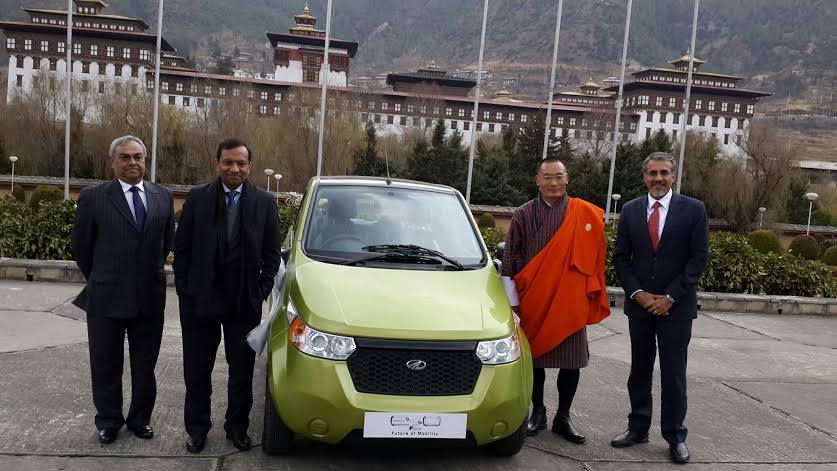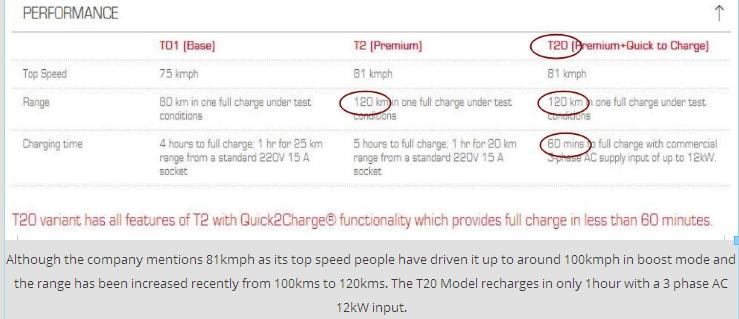This will happen, if Bhutan can achieve its goal of becoming a zero-emissions nation. The landlocked Himalayan country wants to replace their petrol taxi's and cars with electric cars.
With aggressive electric vehicle policies by the Bhutan government, Nissan and Mahindra REVA are rushing to the mountains!
Going electric makes total sense for Bhutan.
- This mountain country is blessed with Himalayan rivers that has been tapped successfully for clean hydro electric power. Only 5% of the clean energy generated is used with the rest being exported to India. But they import OIL from India to run their Taxi's and Cars. Thus making the country a net importer of energy.
- Most journeys are relatively short, most residents of the capital city of Thimpu primarily rely on a fleet of taxis for transportation, making the electrification of the fleet more significant than in other countries where more vehicles are privately owned.
- Turning those fleets into EV's will ensure they import less OIL, which would benefit the local economy
Nissan will supply quick chargers and Leaf cars for the government fleet and taxis. Bhutan will study exempting EVs from taxes and allow them to earn carbon credits. Nissan will also set up a network of charging stations across Thimphu, the capital.
“This is a very initial step,” says Carlos Ghosn, CEO of Nissan. “We obviously want to sell a lot of Leafs, but it’s still early to talk about how many.”
Carlos Ghosn cant expect to sell many Leaf's in Bhutan. The cost of the Leaf, which is around $20,000, will ensure that the Leaf will be out of reach for a huge percentage of the population.
Mahindra launched the e2o electric car in Bhutan. With a price tag of 6.99 Ngultrum (Bhutanse currency, ex-showroom Bhutan ) for the base model, the e2o can sell better to the general public than the Leaf in Thimpu.
Also Mahindra Reva is planning to establish infrastructure like setting up quick charge stations.
According to Mahindra, there would be around 7,000-8,000 electric vehicles in the next three years in Bhutan and it would need 3,000-4,000 charging stations.
- The cost will be a hindrance, as the average citizen of Bhutan earns about $1400 per year.
There are around 10000 taxis in the entire country, around 4000 taxis in Thimpu. So after electrifying the fleet, which is government owned, they will need to sell electric cars to the general public and hope that everybody buys an EV, so that they can slash the OIL bill. This is big challenge.
The Nissan leaf costs around $20,000 and the Mahindra e2o will cost around $12000. It remains to be seen if the people of Bhutan can afford these cars. But the prime minister Tshering Tobgay is positive - “If we can get international agencies and individuals to support us to subsidize one-third of that price, it becomes very affordable”
- Also outside of the capital city of Thimpu, roads are poorly surfaced, mountainous, often subject to mudslides, and heavy snow. It remains to be seen if Electric Taxi's can operate between Thimpu and Dhampu, a distance of 150+ km. Will passengers wait at a charging station for 30 mins while the electric taxi gets charged?
- Also the temperatures can get very cold in the winters. Nissan and Mahindra will need to work on heating their battery packs for them to be reliable all year long.
The Prime Minister of Bhutan, Tshering Tobgay hopes Thimpu will eventually become a center for electric-car research and development. If he manages to pull it off by replacing their oil based cars and taxi's with electric ones, it will be one heck of an achievement. India - Are you reading this?


